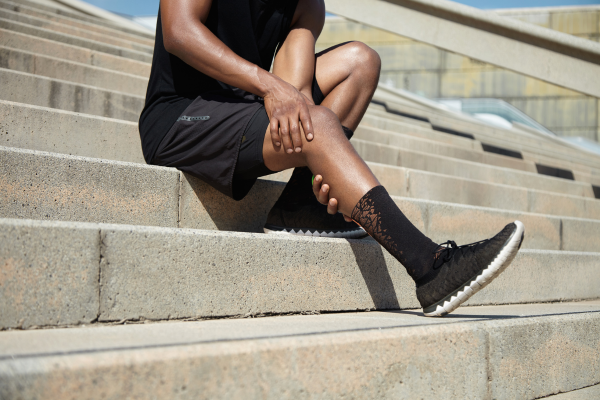We find that during the warmer months of the year, people generally like to get outdoors and be more active. This often means that we tend to see an increase in patients presenting to our clinics with various sports injuries. All sports place massive physical demands and stresses on the body. Generally, the body has the ability to adapt to such stresses, for example, bone density tends to increase the more you participate in weight bearing activity. But, in some circumstances, the increased demands on the body outweighs its ability to adapt and the involved tissue (usually muscle, tendon, ligament or bone), becomes exposed to recurrent micro-trauma and eventually fails.
Sports injuries can be classified into two main types:
Acute Injuries such as an ankle sprain or shoulder dislocation are caused by a traumatic incident or accident, coming on suddenly and usually causing excruciating pain.
Overuse Injuries conversely, often come gradually over a period of time and generally are caused by the repetitive nature of a specific sport. One of the main causes of this in sports is overuse or repetitive strain (RSI), for example, a tendon rubbing against a bone or a bursa causing friction and microtrauma to the tissues.
Common Overuse Injuries include:
- Tendinitis e.g. shoulder rotator cuff or Achilles
- Shin Splints (Tibialis anterior tendinitis)
- Tennis Elbow (Lateral Epicondylitis)
- Golfers Elbow (Medial Epicondylitis)
- Bursitis
- Stress Fractures
Whichever sport you play, it’s virtually impossible to prevent every injury, but it is suggested that if you take the correct preventative action beforehand then injury rates could be reduced significantly. So what can you do to help prevent injuries whilst playing sport?
6 ways to prevent sporting injuries
Below we have suggested a few ‘general rules’, which may help see you through the summer months and keep your injuries to a minimum:
1. A good warm up is crucial
If your muscles are warm then they will be far less prone to injury. An adequate warm up is vital for injury prevention. Make sure your warm up is adapted according to the demands your sport. This may just involve starting off slowly, or you may do some specific stretching or mental preparation. If running is your sport check out our quick and easy stretching guide.
2. Make sure you know the rules and stick to them!
Rules are intended, to a certain extent, to keep sports safe. Rules of conduct, including illegal blocks and tackles are imposed to keep participants healthy and unharmed.
3. Be in proper physical condition to play your sport.
If you play any sport, you should make sure that you train appropriately for that sport. You shouldn’t assume that the sport itself will get you into shape! Most injuries can be avoided if you do a regular program of exercises designed specifically for your sport. Strength training is crucial for all sports. If you don’t have a gym membership, or just hate going to the gym, there are some effective exercises that can be performed at home, using your own body weight like; squats, lunges, planks, push-ups, dips and sit ups.
4. Do not play if you’re tired or in pain.
You need to listen to your body for warning signs that things are not right. Pain signifies there’s a problem and tiredness means that your body needs a rest – careless injuries are easily caused this way.
5. Get some rest.
It is generally understood that the more consecutive days you train, the more likely you are to pick up sports injuries. Many of our patients think the more they train, the better they’ll play, but this is a fallacy. Rest is a major factor when it comes to proper training. Rest can make you stronger and prevent overuse injuries, tiredness and poor judgement.
6. Wear the correct protective clothing and equipment.
Helmets, mouth guards, gloves and other equipment has been designed and used for a reason. If you participate in sports that require protective gear, then make sure that it fits you well, in order to safeguard your knees, hands, teeth, eyes, and head. Never play without it!
If you need any help or advice with any niggles or sports injuries that you may be suffering with, then please contact us, as one of our osteopaths, physiotherapists or sports therapists will be happy to help.
We are highly trained and have vast experience in the management and treatment of a wide range of sports injuries – we can help to establish the cause your injury and from this, we then create a treatment plan which will help relieve your current symptoms whilst giving advice on how to prevent future issues occurring.





